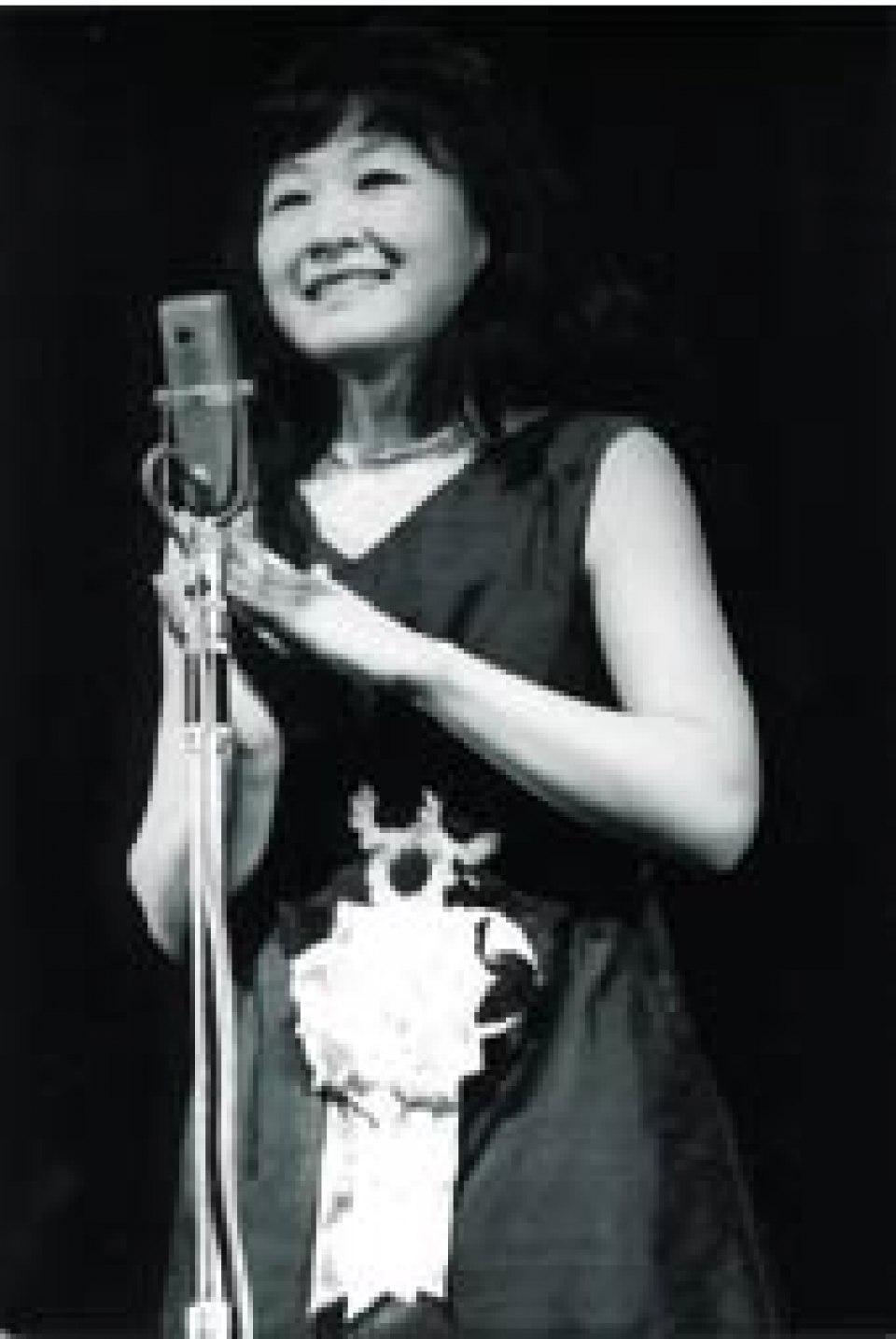Debut デビュー

父は黙ってアマチュアシャンソンコンクールに申し込んでいた。
私は宝くじを買う程の軽い気持ちでその誘惑にのった。
エディット・ピアフの歌っていた「メア・キュルパ(七つの大罪)」を選びコンクールに出場。「恋をする女はどんな罪も犯してしまうものよ」という激しい恋唄。審査委員長の蘆原英了さんに「声はいい。けれどあなたのような少女にこの歌は無理ですよ」と笑われた。
翌年、新しいシャンソンの中から「ジョナタン・エ・マリー」といううぶな初恋の歌を選び、優勝。夏のパリ祭の舞台に立った。
ハンブルグ、パリ、ローマの旅から帰った後、 日本グラモフォンレコードに所属と決まった。
その時「まあヒットが出なかったらディレクターにでもなって下さい」と社長に言われた。 デビューシングルにたどり着くまで半年。
10曲あまりをレコーディングしたけれどなかなか合格点が出ない。
1966年4月、やっと発売されたシングル「誰も誰も知らない」。
売れ行き悪く、誰にも知られずに終わった。
8月、2枚目のシングル「赤い風船」発売。
やっと歌手としての旅がはじまろうとしていた。
My father entered me in an amateur chanson contest without telling me.
I was intrigued without thinking too much about it, just as I might have been in buying a lottery ticket.
I chose a song sung by Edith Piaf, “ Mea Culpa” (My Guilt), to sing at the contest. It is a passionate love song, with words such as, “ A woman in love would commit any crime.” The chairperson of the judges, Eiryo Ashiwara, laughingly commented, “ You have a good voice, but you are too young for this song.”
The following year I chose “ Jonathan et Marie” from among the new chanson, which is a song about a naive first love. I won the championship and a trip to Europe, and sang on stage in Hibiya Park Theater for the Fourteenth of July, Bastille Day. After returning from the trip to Hamburg, Paris and Rome, I got a contract with Japan Gramophone Records. The head of the company told me, “ Even if you don’ t get a hit, I hope you will come to work as a director.”
It took me half a year to produce my debut single. I recorded about 10 songs, but I had a hard time getting one approved. In April 1966, my first single, “ DAREMO DAREMO SHIRANAI” (Nobody ever knows), went on sale. It didn’ t sell well, and nobody ever knew about it.
In August my second single, “ AKAI FUSEN” (Red balloon), went on sale and won the grand prix for a new singer.
Finally my journey as a singer had begun.

